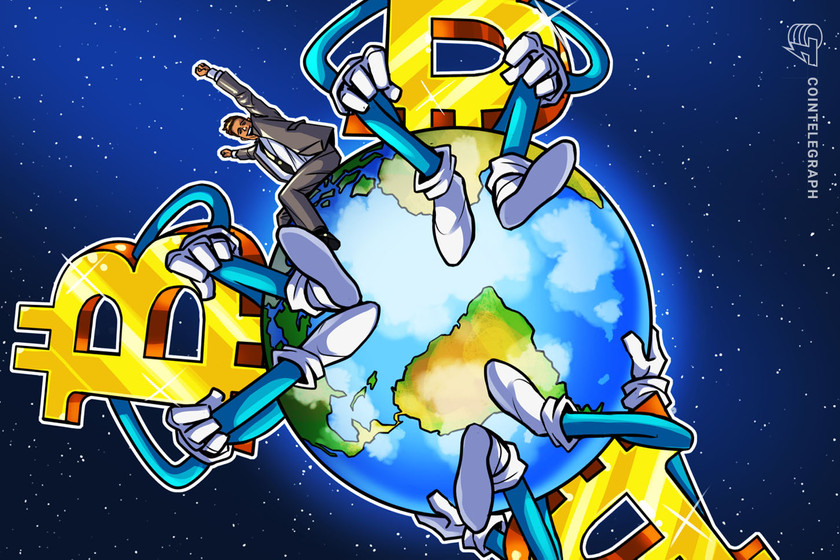The fundamental aspects of Bitcoin (BTC) continue to power global financial inclusion, financial privacy and autonomy in conflict-affected nations despite difficult macro-economic and cryptocurrency market conditions over the past year.
These are the key takeaways of an in-depth interview with Prince Philip of Serbia and Yugoslavia conducted by Cointelegraph Brazil’s Cassio Gusson as 2023 gets underway.
Prince Philip Karađorđević shared his thoughts on the sector as he joined JAN3 as its Chief Strategy Officer. The Bitcoin technology company was driving the adoption of the preeminent cryptocurrency and was founded by Bitcoin proponent Samson Mow in 2022.
Jan3 announced a partnership to help develop El Salvador’s Bitcoin City in April 2022 and has since opened up an office in the BTC-friendly nation according to Prince Philip. The company also intends to provide guidance and services to other nations looking to adopt Bitcoin in some capacity.
As Prince Philip told Cointelegraph, Bitcoin remains important as the preeminent cryptocurrency, with its technological specifications allowing for the emergence of a fairer monetary system and individual sovereignty of wealth:
“Bitcoin, specifically, has the potential to promote financial inclusion because of its decentralized nature, which makes it resistant to censorship and manipulation.”
This is particularly important for individuals or communities that do not have access to financial institutions or those residing in countries with unstable or corrupt governments and institutions.
Prince Philip also highlighted Bitcoin’s ability to ‘bank the unbanked’, given its low barrier to entry. Any person with a smartphone can download a Bitcoin wallet and gain access to ‘basic banking services’, which has become extremely relevant in emerging economies:
“Issuing a checking account with a minimum balance, a checkbook, a debit card, is simply too expensive for low income consumers in the developing world, and for the banks themselves.”
Furthermore, Prince Philip highlights that Bitcoin has no branches, no correspondent banking relationships and no employees. Stablecoins are becoming equally useful in developing nations where people want to save in the US dollar:
“Bitcoin and stablecoins have the potential to provide much-needed financial inclusion to people in countries with limited or no access to traditional banking services.”
Both options provide a secure and cost-effective means to send and…
Click Here to Read the Full Original Article at Cointelegraph.com News…
























